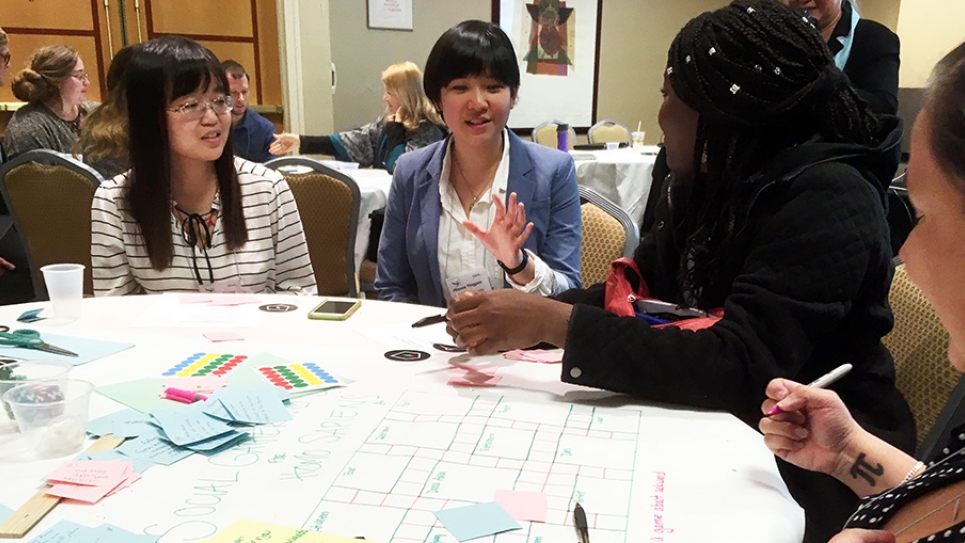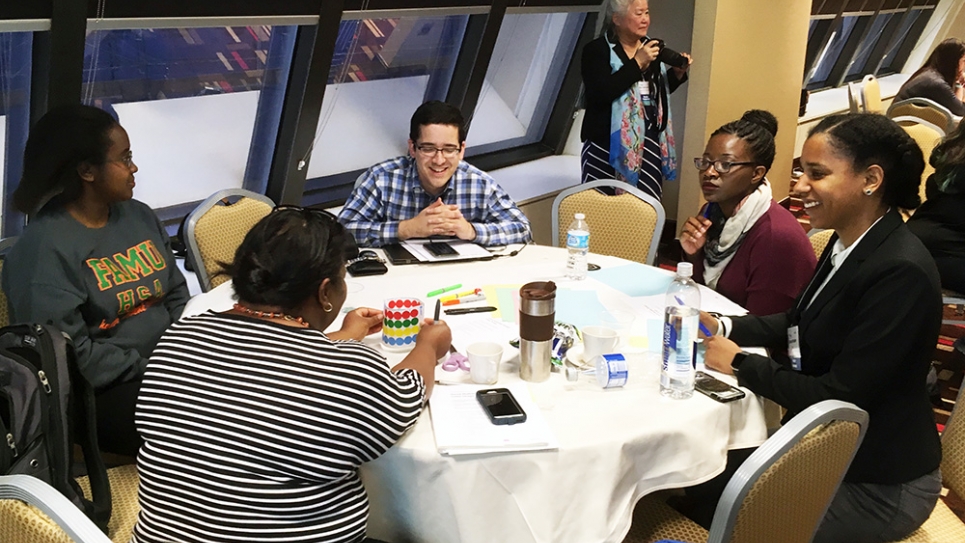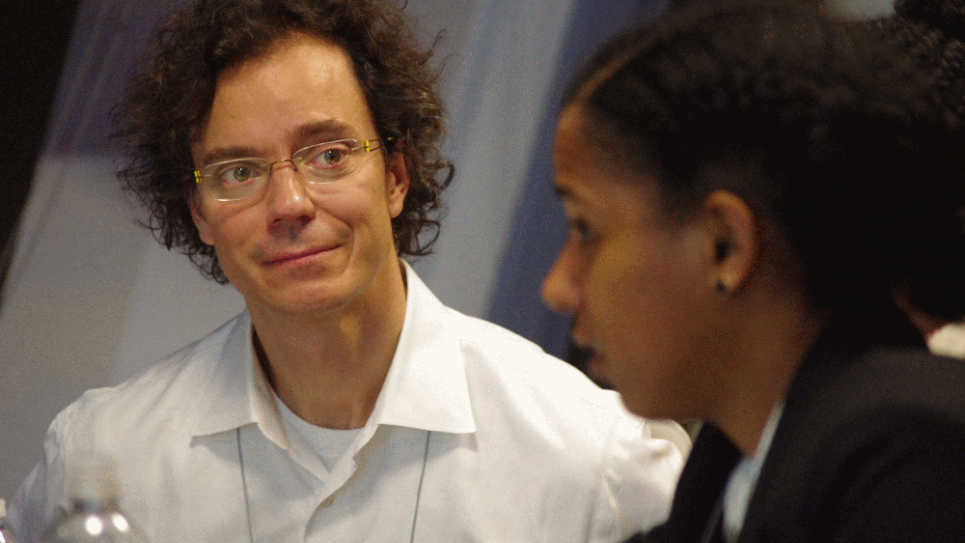
ALCF participates in program to increase diversity in STEM fields
At the annual Society of Industrial and Applied Mathematics (SIAM) Computational Science and Engineering (CSE) Conference, the Broader Engagement (BE) program is helping to create a more inclusive environment for underrepresented groups, such as women, minorities, and people with disabilities.
“It’s critical that we continue to grow and diversify the pool of talent in all STEM (science, technology, engineering, and mathematics) fields,” said Richard Coffey, Director of User Experience at the Argonne Leadership Computing Facility, a U.S. Department of Energy Office of Science User Facility. “With the Broader Engagement program, we are breaking down social and institutional barriers to open new doors for underrepresented groups to get involved in the computational science community.”
The BE program aims to give students and early career professionals an opportunity to attend the technical conference, engage with community members, and take part in programs aimed at advancing their careers. Organized by the Sustainable Horizons Institute, the program welcomed more than 50 participants to SIAM CSE2017 in Atlanta this March. Argonne supported six attendees through the BE program.
"For many BE participants, this was their first experience at a scientific conference,” said Mary Ann Leung, founder of the Sustainable Horizons Institute. “Our program aims to make it a positive experience that will have an impact on their career trajectory. In some cases, participants report that the program has had a very dramatic impact."
At SIAM CSE2017, the BE program allowed attendees to participate in a peer review, collaborate with each other in specially designed exercises, develop mentorship relationships, and share advice on STEM careers.
As part of the conference, Coffey, a regular contributor to BE programs, spearheaded an interactive STEAM (STEM + Arts) workshop to promote the value of fusing different disciplines and modes of thinking. Led by Minsoo Thigpen (Brown University student and president of Rhode Island School of Design (RISD) STEAM group) and Lukas WinklerPrins (recent Brown University graduate), the activity introduced STEAM concepts by modeling social systems through collaborative game design.
“The idea behind the STEAM workshop was to encourage participants to use their specialized knowledge in new and creative ways,” Coffey said. “STEAM teaches us that we can bring together diverse teams to bridge disciplinary language and silos to conquer multifaceted, interdisciplinary challenges.”
The SIAM CSE BE program was supported by Argonne National Laboratory, Lawrence Berkeley National Laboratory, Oak Ridge National Laboratory, the Coalition to Diversify Computing, Computing Research Association (CRA-W), Google, the Army Research Office, and Indiana University.
Argonne National Laboratory seeks solutions to pressing national problems in science and technology. The nation's first national laboratory, Argonne conducts leading-edge basic and applied scientific research in virtually every scientific discipline. Argonne researchers work closely with researchers from hundreds of companies, universities, and federal, state and municipal agencies to help them solve their specific problems, advance America's scientific leadership and prepare the nation for a better future. With employees from more than 60 nations, Argonne is managed by UChicago Argonne, LLC for the U.S. Department of Energy's Office of Science.
The U.S. Department of Energy's Office of Science is the single largest supporter of basic research in the physical sciences in the United States and is working to address some of the most pressing challenges of our time. For more information, visit the Office of Science website.

